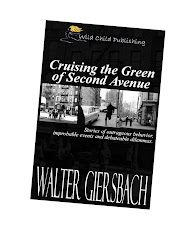Elections seem to get more
baffling each season, but this isn’t the first time New Jersey has run into
some curious situations.
Biting the Voter in the Neck? One of the most
controversial candidates was Jonathon “The Impaler” Sharkey, who filed to run
for President in 2004 and 2008 as an Independent candidate. He was familiar to Jerseyans, however, as
reported by www.LiveScience.com. He had run for Congress in New Jersey as the
Republican candidate in 1999, in Indiana with the Reform Party in 2000, and
once again as Republican in Florida in 2001, and governor of Minnesota in 2006.
Sharkey
proclaimed himself to be a Luciferian, vampire, professional boxer and wrestler under the name of Rocky "Hurricane"
Flash. He founded the Vampires, Witches
and Pagans Party in 2005, a party
officially recognized by United States Federal Election Committee.
During his 2006
run, when asked about violent criminals during a press conference,
Sharkey told reporters that he would impale murderers, rapists and other
dangerous offenders on the capitol lawn, just as Vlad the Impaler supposedly
did in Romania during the mid-1400s.
Honest Abe Never Carried the
State The
Democrats met in April 1860 amid great turmoil to select their candidate for
President. Northern Democrats felt that
Stephen Douglas had the best chance to defeat the “Black Republicans” and
nominated him. Southern Democrats
considered Douglas a traitor because he wanted to let territories choose not to
have slavery, and stormed out of the convention. At a separate convention, southern Democrats
chose then vice president John C. Breckenridge.
But troubles were only beginning, according to the Independence Hall Association in Philadelphia.
The
Republicans met in Chicago and recognized that the Democrat’s turmoil actually
gave them a chance to win. They needed a
candidate who could carry the North with a majority of the electoral votes. To do that, they needed someone who could win
New Jersey, Illinois, Indiana and Pennsylvania — four important states that
remained uncertain. Abraham Lincoln
emerged as the best choice as the symbol of the frontier, hard work, the
self-made man and the American dream. His debates with Douglas in early 1860 had made
him a well-known national figure.
A
number of politicians and citizens calling themselves the Constitutional Union
Party nominated John Bell of Tennessee, a wealthy slaveholder. They were for moderation, deciding the best
way was to take no stand at all on the issues dividing the north and the south.
With four candidates in the
field, Lincoln received only 40 percent of the popular vote, but garnered 180
electoral votes — enough to narrowly win. Abe Lincoln failed to carry New Jersey, losing
to Douglas in 1860. (He lost again, four
years later, to George B. McClellan.)
A few weeks after the
election, South Carolina seceded from the Union.
 |
|
The states that Lincoln won are shown in red, Breckenridge
in green, Bell in orange and Douglas in brown.
In 1864, Douglas won only New Jersey, Kentucky and Delaware.
Nominating the Birthday Boy One of the unlikeliest of host cities for a
party convention was also the scene of one the most unusual moments in
convention history. Democratic delegates
attending the 1964 gathering in Atlantic City were greeted with the usual pomp
and spectacle, but with one special twist, according to the History Channel
website www.History.com.
President Lyndon Johnson, never one to shy away
from public adoration, had arranged for the final night of the convention to
fall on his 56th birthday. His acceptance speech was followed with a rousing
rendition of “Happy Birthday” from the crowd, and topped off not just by balloons
but fireworks.
There’s no record of birthday cake being served to the thousands of
attendees.
Oops, There Goes a Vote Because of the 2010 Census Reapportionment, New Jersey lost one electoral vote, giving it
14 through the 2020 presidential election, according to the political website www.270towin.com.
New Jersey, one of the 13 original colonies, joined the Union in
December 1787 and has participated in all 57 presidential elections. Thanks to the density of our population, the
state has more electoral votes per square mile than any state except Rhode
Island. Our 14 electoral votes make it a
rich prize. New Jersey has gone
Democratic in the last six elections, after voting Republican in eight out of
the previous 10. Barack Obama won the
state over Mitt Romney by a margin of 58 percent to 41 percent in 2012.
Back When New Jersey Women
Voted. Really. The Founding fathers’ electoral
college didn't do much for the Founding mothers, wrote Akhi Reed Amar and Vikram David Amar
in a legal analysis, “History, Slavery, Sexism, the South and the Electoral
College.”
In a system of direct national election, any state that chose to
enfranchise its women would have automatically doubled its voting power in
presidential elections. The era of
universal white manhood suffrage in the early 19th century saw many other
restrictions on voting. New Jersey was
the one state that had allowed women property holders to vote. Women lost that right in the early 1800s with
the introduction of universal white manhood suffrage.
Under the electoral college, each
state got a fixed number of electoral votes based on population, regardless of
how many or few citizens were allowed to vote or actually voted. As with slaves, what mattered was simply how
many women resided in a state, not how many could vote there.
|


No comments:
Post a Comment